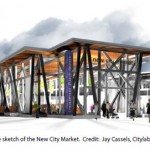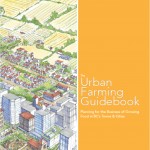About EDRS
 WHAT IS THE ECODESIGN RESOURCE SOCIETY?
WHAT IS THE ECODESIGN RESOURCE SOCIETY?
The EcoDesign Resource Society (EDRS) is a not-for-profit organization which promotes environmentally responsible (‘green’) design, planning and social and economic development practices through research, education and communication.
As a non-profit, non-political, charitable group, EDRS has been instrumental in promoting more environmentally-responsible development practices in B.C. EDRS is solely supported by membership fees and grants from foundations for specific projects.
This site offers a wide array of links to resources across a broad spectrum of innovative and progressive community and development issues.
RECENT PROJECTS
 New City Market Food Hub Study
New City Market Food Hub Study
OUR HISTORY
The EcoDesign Resource Society began in 1992 (EDRS) has been a leader since its inception, pushing forward in new areas of sustainable development. EDRS began in 1992 as a grassroots non-profit organization encouraging environmentally sensitive design and construction.
During the first seven years of its existence it operated as a resource centre offering a library of select publications on green design, product literature and samples, as well as publishing a journal and the EcoLines Newsletter.
Recently, with many others working solely in the green design field, EDRS has begun focusing more on gaps it sees in areas of health, sustainable food systems, and economic dimensions of communities and development. Recent projects include the development of planning and design strategies for urban farming and sustainable food system hubs. Currently EDRS, continuing its exploration mission, is working on two major new frontiers for cities and developments– that of designing for health, and building sustainable local economies.
In 1999, responding to the changing terrain of information on green design and development, EDRS evolved its focus from an emphasis on assembly, housing and development of resource materials, to a more interactive form. With this expanded mission, EDRS expanded the focus from the technical aspects of design, to include multiple dimensions of sustainability including social, institutional, economic, political and environmental aspects that drive the development of communities.
Over the years, as other organizations emerged to take over managing these sectors, EDRS continued to move forward to scout new territory. For instance, Thomas Mueller was a long time EDRS board member and now is the CEO of the Canadian Green Building Council – the leading NGO in that sector.
EDRS believes in the concept of “design” as it is embedded in its name. Design goes beyond general information, policies or plans. Design asks a higher level of commitment to detail and pragmatic reality. As such, EDRS focuses on grappling with large challenges we face in becoming sustainable and working with partners to develop and deploy practical solutions to the many “eco” challenges we face in our communities daily – ecological and socio-economic.
NOW
EDRS currently acts as a local network to develop and share information about sustainable community policies, practices and design through research projects, partnership projects, the EDRS listserve, website, events and projects.
MISSION STATEMENT
EcoDesign will assist the public and the design, building and manufacturing industries to make informed, sustainability-supportive and responsible choices through a range of activities including:
a) Promoting dialogue on design, planning and development issues related to health, the environment, and sustainable development more generally;
b) Providing information on ecologically responsible approaches to designing, planning and developing buildings and communities; and
c) Encouraging demand for healthy and environmentally responsible community development, buildings, products and practices.

 Urban Farming Guidelines
Urban Farming Guidelines